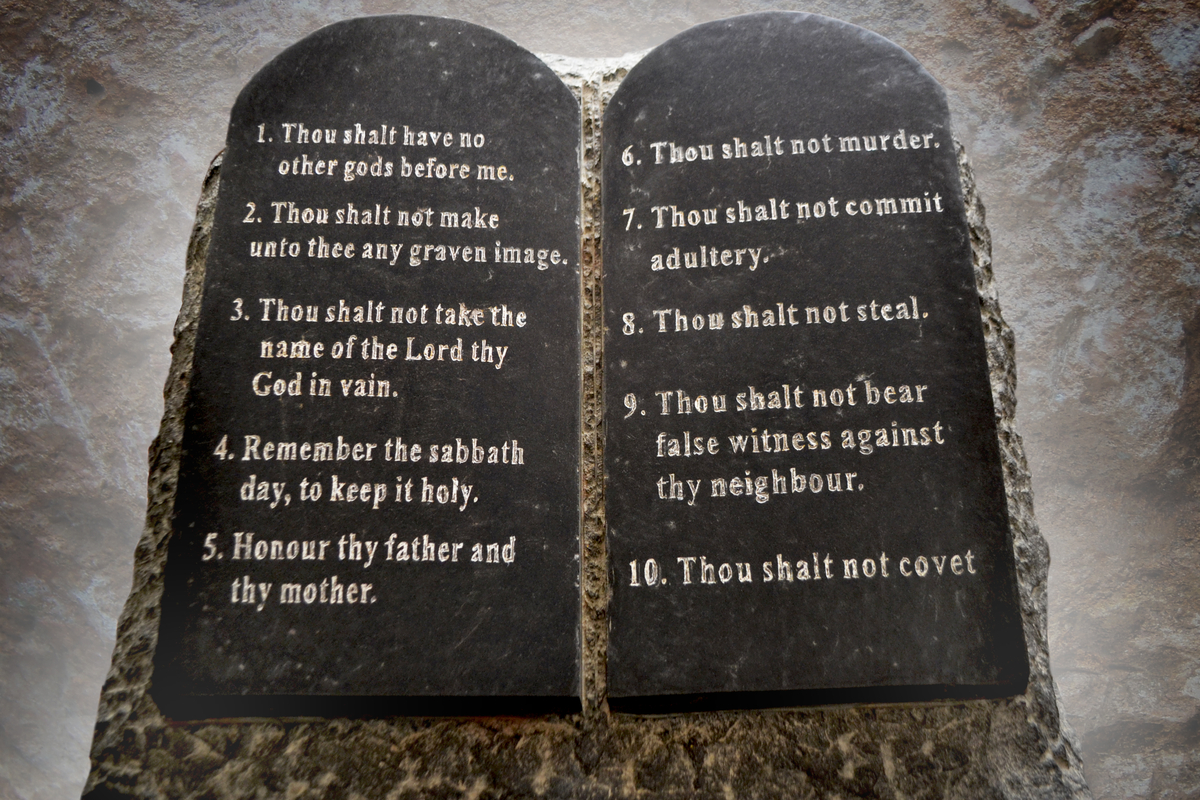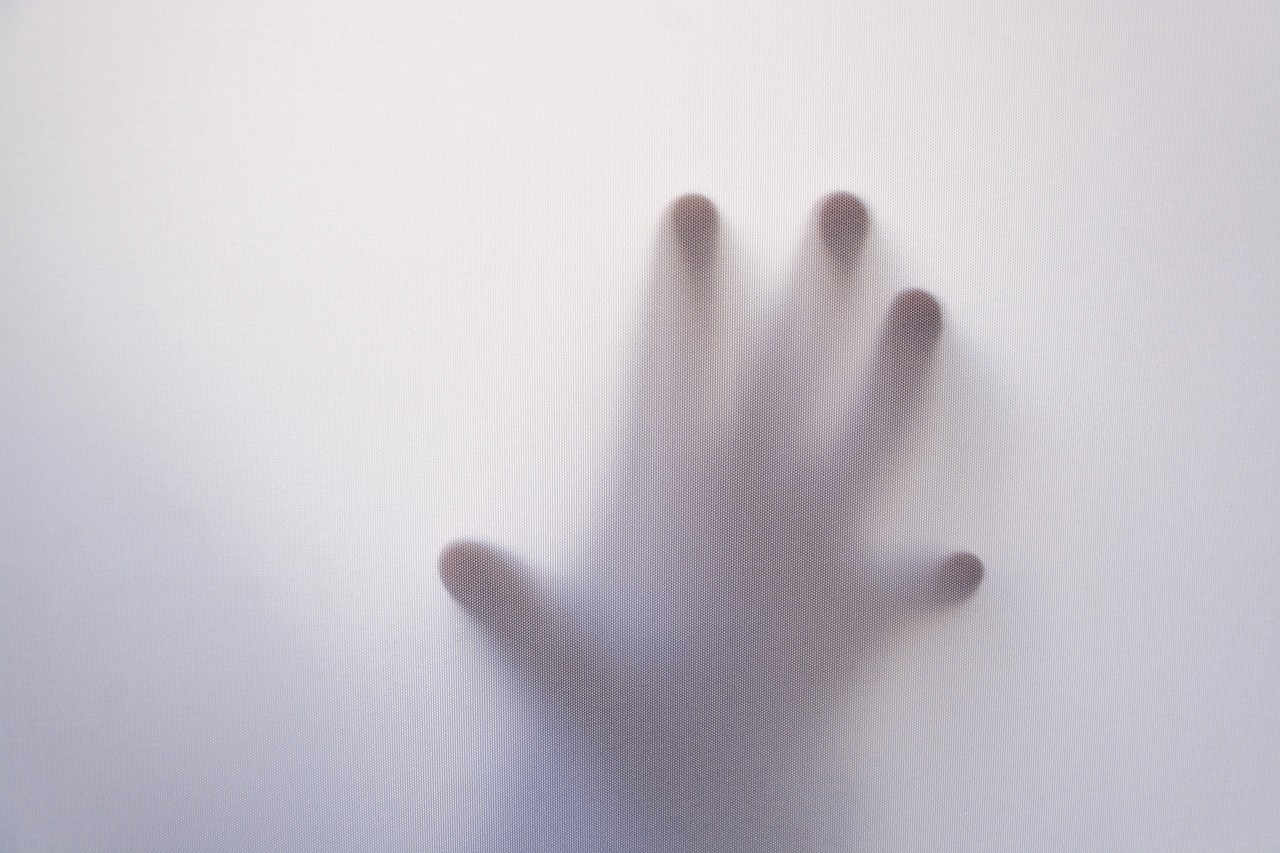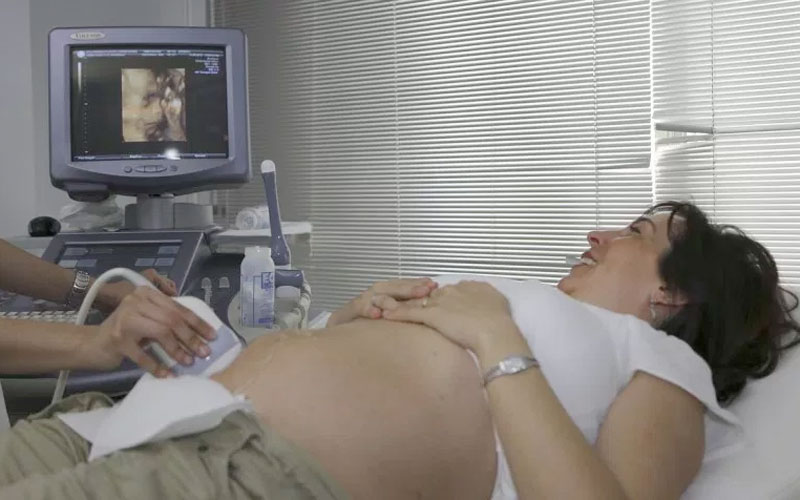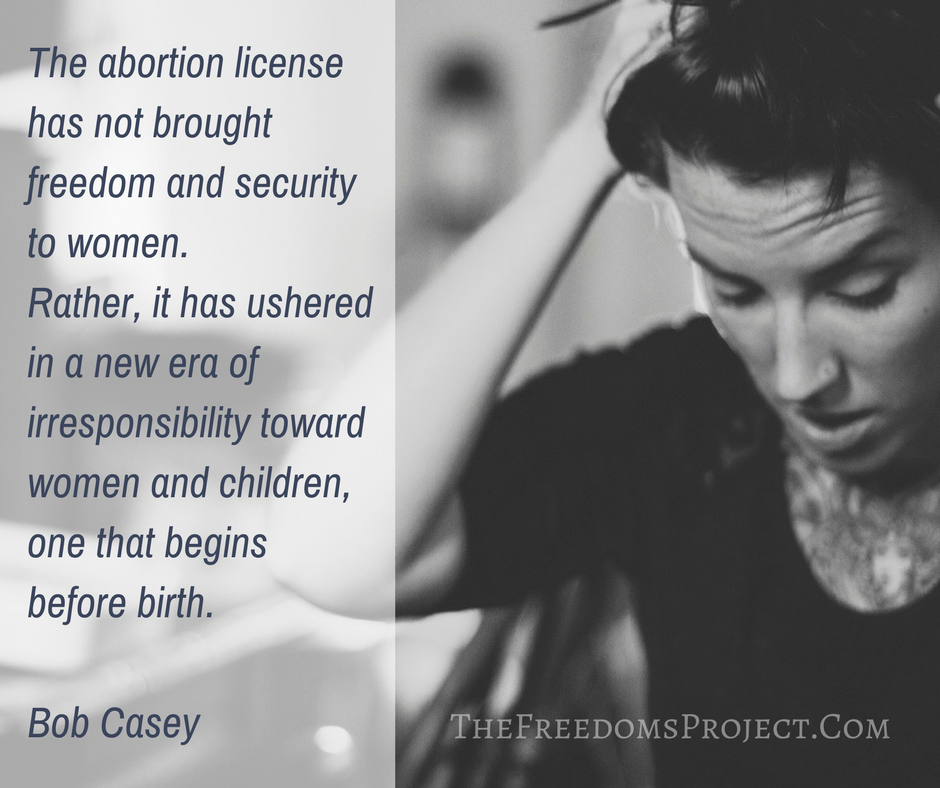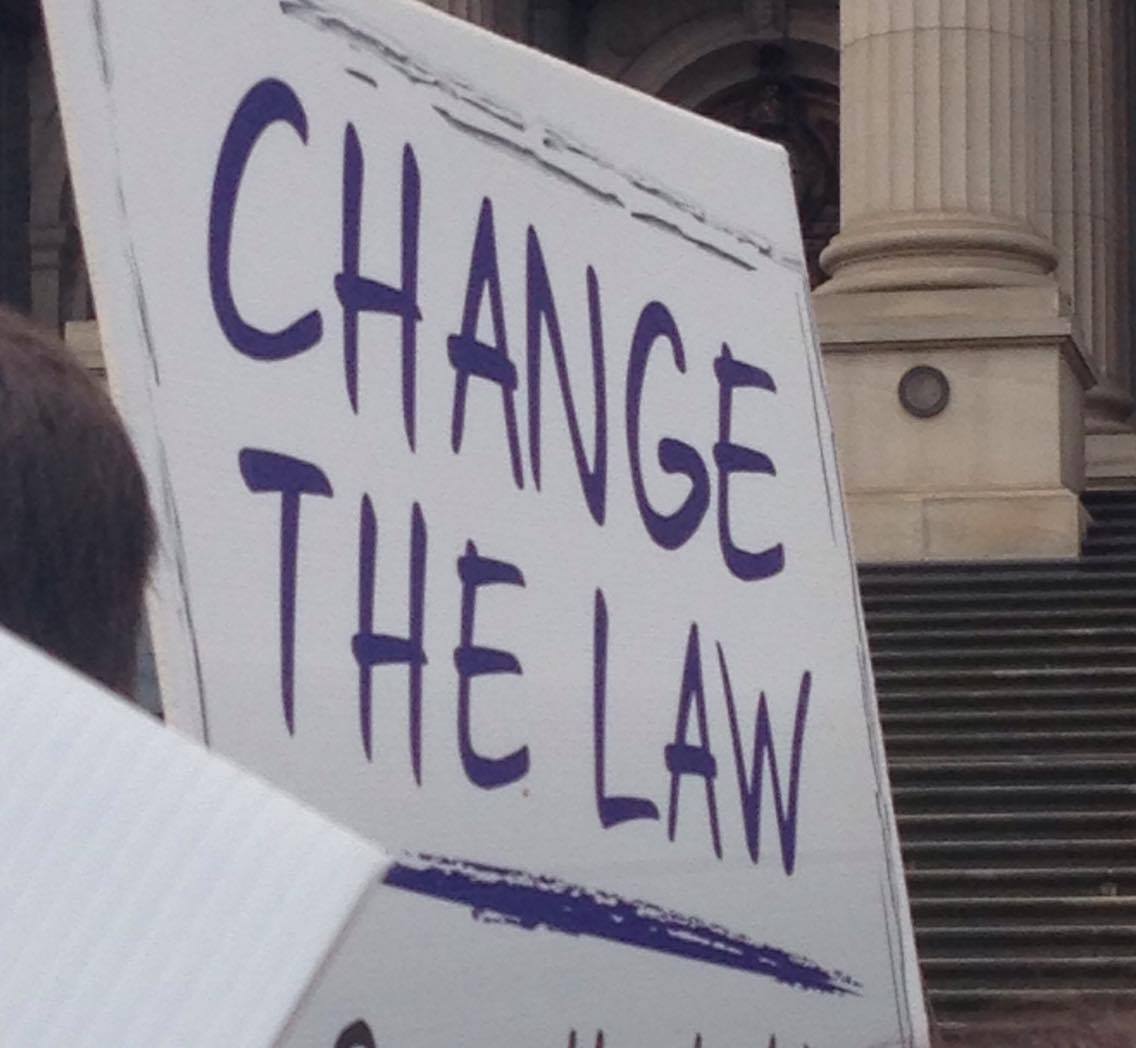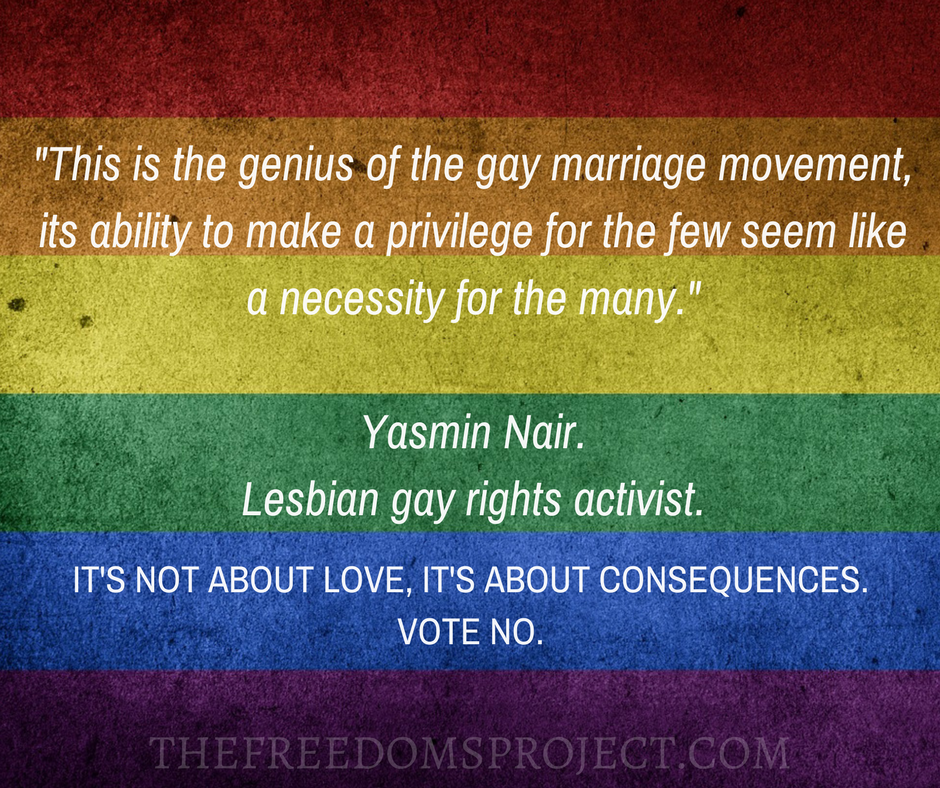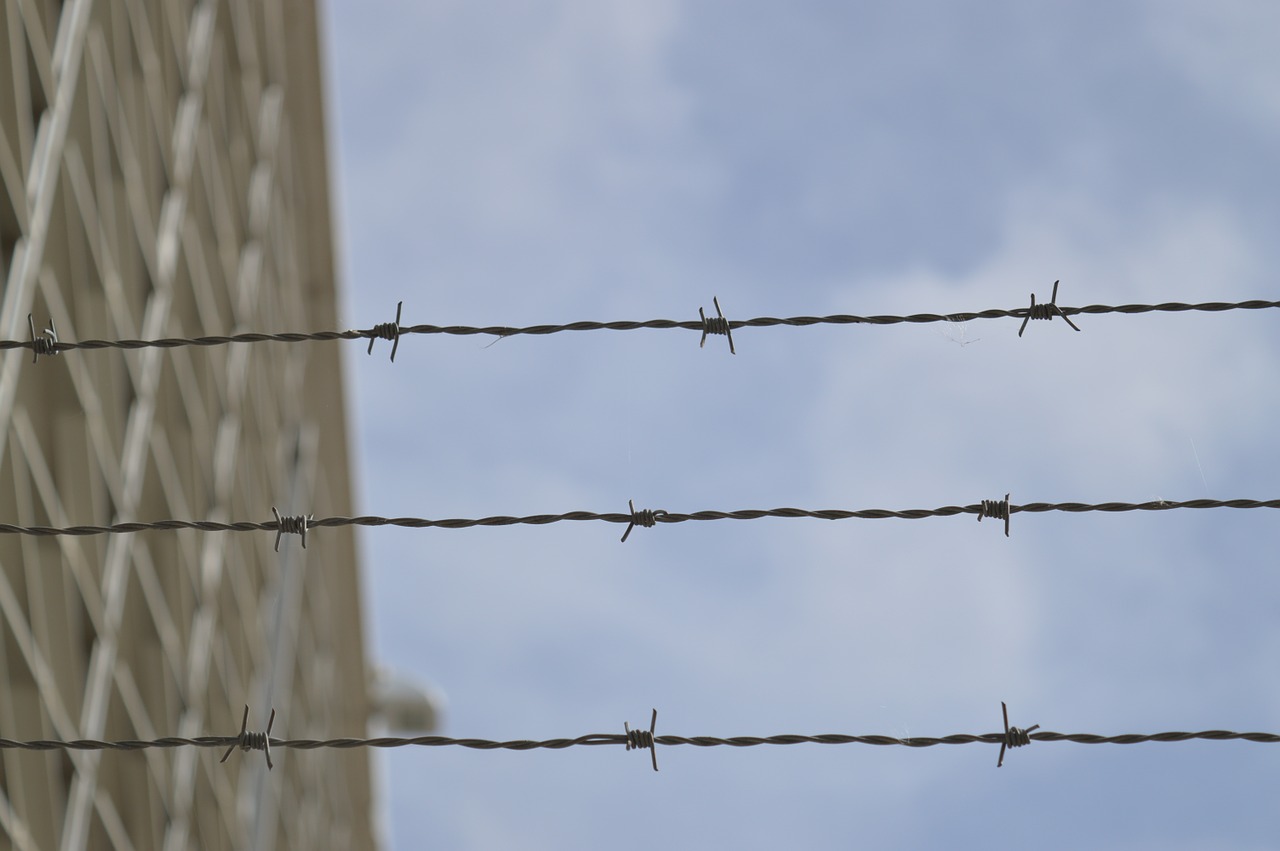
Kathy Clubb
Founder and Editor of The Freedoms Project
Kathy has been active in pro-life work for 6 years and was involved in a constitutional challenge to Victoria’s exclusion-zone laws. She is the Melbourne co-ordinator for Family Life International and is a member of the Helpers of God’s Precious Infants. Kathy began writing about pro-life and Catholic issues at Light up the Darkness.net but broadened her range of topics as she came to learn more about the many threats to freedom which are common to all Christians.
Kathy home-educates her youngest 6 children and considers her family to be her most important pro-life work.
10 Reasons Why Christianity is Leaving the Public Square
I recently attended a colloquium run by the Presbyterian Church, Religion in the Public Square. Speakers included the illustrious Augusto Zimmerman, journalist Angela Shanahan, and other cultural commentators. The talks covered the current litany of restrictions being placed on Christians in the public arena. It was sobering to hear spectrum of persecutions being waged against us both in Australia and overseas - remember this was before the results of the postal vote on marriage were known. If it was bad before, then it prosises to be much worse from now on.
This is What Progressives Think About Your Freedoms
One of the major differences between conservatives and progressives is that we demand protections for all citizens, whereas in general, progressives demand rights for their adherents exclusively. This difference has been particularly noticeable during the campaign for marriage equality, although it shows up across the board. Progressives have taken to openly criticising us for our desire to preserve our freedoms. Gay rights activist, Rodney Croome, goes so far as to say that for conservatives - whom Croome refers to as the radical right - the fear of losing freedoms is actually an attempt to gain power:
Dying Without Dignity
Voluntary assisted suicide, physician-assisted suicide and euthanasia are always sold as being peaceful solutions to the age-old problem of death. Rather than finding ways to help people accept the uncertainty surrounding this very certain phenomenon, purveyors of the death-culture can only offer their single service: murder. But experience has shown that the very symptoms patients are trying to avoid may crop up in an assisted killing:
The most comprehensive study on clinical problems with assisted suicide was conducted over a six year period in the Netherlands, where assisted suicide has been legal for many years. The study was published in the New England Journal of Medicine on Feb. 24, 2000. It found that more than 18 percent of assisted suicides experienced problems severe enough to cause a doctor to step in and euthanize the patient. In at least 14 percent of assisted suicides the patient had problems with completion including waking up from coma, not becoming comatose, and patients not dying after becoming comatose. Another seven percent of assisted suicides reported muscle spasms, extreme gasping for air, nausea and vomiting. (N Engl J Med 2000; 342:551-556 as quoted here).
So let's look again at these stats:
- 20% of cases required doctors to intervene and directly murder their patients
- 14% failed to die, ie woke up
- 7% of patients experienced distressing symptoms - far from the peaceful death they were promised. [Read more here]
These are hardly 'dignified death' - and sometimes no death even occurs!
No Guarantees
Meanwhile, the Victorian government is doing its darndest to find an effective method of killing it's second-most most vulnerable citizens. (The art of doing away with its most vulnerable - the unborn - was perfected 9 years ago, when abortion was decriminalised). The Health Department has apparently approached Monash university in an effort to procure something elegantly lethal to provide a sure-fire way of murdering Victorians. Physicians will have the motive and the opportunity, if the legislation goes ahead, but are still shopping around for an effective means. However, they might have a small problem: death-inducing drugs are not as failsafe as they're purported to be. Here's a statement from end of life researcher Sean Riley: [Read more in this article]
The pervasive belief that these, or any, noxious drugs are guaranteed to provide for a peaceful and painless death must be dispelled; modern medicine cannot yet achieve this. Certainly some, if not most, executions and suicides have been complication-free, but this notion has allowed much of the general public to write them off as humane, and turn a blind eye to any potential problems. Executions or PAS have never been as clean as they appear, even with the US’s medicalization efforts during the 1980s."
Is it Dignified to Die of Loneliness?
This 2014 article mentions nine cases of patients with psychological problems who had been euthanised the previous year in the Netherlands. Their problems ranged from an extreme germ phobia to intense self-hatred. One common denominator in all the cases is that the patients appeared to have no-one to support them in living; they seemed to be extremely lonely people. These were not patients suffering from unendurable physical pain or terminal diagnoses. Surely we can do better than to condemn those suffering from feelings of isolation and those who have mental health issues to death? Surely we can provide some hope for these sick, lonely people? I found the most chilling part of the article to be this statement:
Over sixty percent of Dutch GPs and specialists who took part in a study at the end of 2012 stated that committing euthanasia on psychiatric patients was “inconceivable”.
Euthanasia advocates may want to rethink their opposition to slippery slope arguments: only one year before these patients were euthanised, the medical establishment had considered that PASE on these grounds to be unthinkable.
The Man Who Woke Up
The case of David Pruiett is one that many would sympathise with. Here was man who was actually suffering from a terminal illness and who had only a short time to live; he was terminally ill with lung and bone cancer. Pruitt decided he would prefer to choose the hour of his death rather than wait for nature to take its course. After consuming the powder from 100 barbiturate tablets, he became unconscious but woke three days later. Pruiett then asked his wife why he wasn't dead yet.
Pruiett, 42, is the only Oregonian to survive a full dose of the barbiturates prescribed under the state's physician-assisted suicide law. After waking up, he reportedly told his wife that while he was unconscious, God had told him that his action wasn't the way to get into heaven. He died from lung and bone cancer two weeks after his failed assisted-suicide attempt.
This story should jolt Christians who approve of assisted-suicide out of their spiritual slumber. Apparently God isn't happy for a mortal to deliberately shorten his own life by even as little as two weeks.
Unhappy With a Sex Change
This case is very sad. It is really just another case of severe loneliness and lack of loving support. A woman felt from birth that she wasn't welcome in her family due to her gender. She underwent hormone therapy and invasive surgery in order to become a man, but the operation didn't go as expected:
"I was ready to celebrate my new birth," he told the newspaper. "But when I looked in the mirror, I was disgusted with myself. My new breasts did not match my expectations and my new penis had symptoms of rejection. I do not want to be... a monster. "
After 6 months of counselling, Nathan Verhelst - born Nancy - felt so dissatisfied with herself that she asked to be killed. This case illustrates the twin tragedies of gender reassignment and failure to offer unconditional love to a family member. This highlights the inability of society to support vulnerable people, especially when the option of state-sanctioned murder is readily available.
Philip Nitschke's Disturbing Habit
Philip Nitschke is a world-renown expert on suicide advice, having authored books and a website describing the finer details of killing oneself. While governments spend millions on trying to halt the rising rates of suicide, Nitschke instead tries to help unhappy people leave this mortal coil and attempt to find peace in annihilation. Nitschke was a medical doctor, until deregistered in 2015; as well as advising on suicide tips, he has also personally assisted some of his patients to die. His biography uncovers some startling facts about his response to taking a life. The following is an extract from this article:
In the first set of page proofs of Damned If I Do sent out by Melbourne University Press, Nitschke was at his most candid. "After performing my role in those deaths, I had an urgent and pressing need for sex," he wrote. He was having an affair with a journalist and the sex, he says, was "frantic and sometimes desperate". But in a later set of proofs, the section is toned down. Sex has become a "desperate craving for intimacy".
Nitschke goes on to say:
"There was this immense feeling of being alive. And then taking a deep breath ... and almost immediately, this sexual urge. It was a way I could demonstrate to myself that I was alive. It wasn't me that was dead."
The response itself is quite bizarre, but his explanation is even stranger. For why would an advocate for suicide be relieved that he was still alive? Perhaps he knows deep down that there is actually something wrong with assisting in such an unnatural death. And speaking of Nitschke, who can forget this case of the Exit International follower who took his own life in a foreign country, leaving his poor family to put together the pieces surrounding his unexpected death?
Judi Taylor’s young and healthy son, Lucas, died of illegally assisted suicide in 2012. Judi says her son’s every step and every instruction — and strong encouragement — came from a Peaceful Pill online forum run by Exit International, the pro-euthanasia lobby group run by now-former medical practitioner Philip Nitschke. What’s disturbing is the entire legal system and government – which claims to be concerned about reducing Australia’s high rate of suicide – is seemingly uninterested in reducing the illegal trade in assisted suicide. In fact, Victoria is currently leading the reckless charge to make the predatory death industry legal.
I highly recommend watching this series of videos in which Judi Taylor describes her heart-breaking experience. [Click here to watch the videos.]
Support Staff have Dignity,Too
This article describes a paper which examines the effect legal euthanasia is having on the medical fraternity in Canada. The author interviewed medical staff to find out how their work had changed since the introduction of assisted suicide. The words of oncologist, Dr. Madeliene Li, are in italics:
Figuring out the best method for death was also complicated. In Oregon, where assisted death is legal, doctors can write patients a description for a lethal oral medication and then walk away. Canadian physicians were surprised to learn that the barbiturates used in that protocol weren’t available here. Instead, doctors and nurses deliver a series of drugs intravenously, a process that is far more intimate than writing a prescription. Assisted death, the polite euphemism used to describe the act, is really a misnomer. Doctors don’t “assist” in a death; they are the active agents. “We are doing euthanasia,” says Li. “We are actively ending a life. And it’s very new to us.” Not only is it new, but the transition from healing to killing is often very difficult for those involved. Li mentions her shock at the moment she realized that it wasn’t necessary to sterilize the syringes used to dispatch the patients. The new “right” of patients to have someone kill them sent shockwaves right through the medical community: …she realized that assisted death affected everyone in the building—the volunteers and the translators, the porters who transport the lethal drugs across floors, the housekeeping staff who could find themselves cleaning a room where [a] person had been killed.
This is yet another unexpected outcome of legalising VAD anywhere: it's not only patients and their families who are affected, but also doctors and other staff, and even cleaners who must carry the burden of being complicit in the death of another human being.
There can be Dignity in Death, but not in Killing
It has always been part of what makes us human to comfort the dying, to minimise their pain wherever possible, to calm their fears, to simply sit and be with them. Some elements of death remain a mystery both to those who have faith in an afterlife and to those who don't. All cultures have recognised this and have created rituals which help ease the dying from this life. These efforts underlie the fact that death can be dignified when patients are respected and honoured as being intrinsically valuable. Physician-assisted suicide and euthanasia falsely mimic respect and honour by cutting off the natural process of death. Speaking specifically of the Victorian Voluntary Assisted Suicide bill, Paul Russell, from HOPE: No Euthanasia reminds us:
Furthermore, if the bill is passed, nothing will be known about the length of time between ingestion of the experimental drugs and loss of consciousness – or even between ingestion and death, or failure rates of such drugs. Incredibly, there is NO requirement for a health practitioner, or even a witness, to be present when this experimental lethal cocktail is ingested.
Man's forays into the realm of hastening death are fraught with dangers, both ethical and medical, and give absolutely no guarantee that death in a PASE scenario will be any more dignified than a natural one. As Victorians brace themselves to hear the outcome of the assisted suicide bill debate, these dangers should be uppermost in the minds of all parliamentarians.
Abortionist Calls Ultrasound Baby a 'Little Black Hole'
From time to time, I think about a strange comment made by a doctor on the ABC documentary ” Inside the Clinic“. [Unfortunately, only the trailer is available now; I had made a transcript when it was first released.] The program followed the day-to-day workings inside the abortion facility where I once witnessed in suburban Melbourne. Some of my friends were interviewed for the program. This is the same doco that I wrote about in the article: “The Australian Abortionist Who Wants America’s Dead Babies” . In that post, I talked about a doctor from this same abortion facility who said she enjoyed her work and ‘was inspired’ by it. So …. she enjoys killing babies for a living. A male doctor is also featured, and was shown assessing an ultrasound image of a 7 week foetus. He said that the ultrasound showed a ‘dark little hole’ consistent with this gestation.
The Pregnant Woman and Abortion
How Abortion Has Changed Women's Experience of Pregnancy
As wonderful and awesome as it is to be with child, we know it's also possible for mothers to face pregnancy with mixed feelings. This is only natural. Fear of childbirth was especially understandable in the past, when medical knowledge was more limited than it is today. Mothers frequently died due to complications that are easily treatable now. And there have always financial and other pressures that have meant the idea of a new pregnancy can take a little getting used to. But generally, mothers and fathers have learned to accept new life and gone on to successfully parent. Today, however, women face an added burden which simply didn't exist in times gone by. It is the pressure to abort. In the Western world and in any place where legal abortion has gained a foothold, abortion has become the default position for pregnancy - and not only for unplanned pregnancies. It's quite common in Australian hospitals and clinics for mothers to be asked, as their pregnancy is confirmed, whether they 'want to keep it'. "It's your choice," medical staff will say. And thus the pressure begins.
9th Anniversary of Victoria's Abortion Law Reform Act
I'll be spending this day in court, answering my charge of violating an abortion facility exclusion zone in 2016. The "Safe-Access Zone" law is an amendment to the Public Health and Wellbeing Act, and takes this heinous abortion law to another level. Click here to read more about Safe Access zones. On October 10th 2008, Victoria enacted some of the worst abortion laws in the world. That year there were 16,084 abortions performed in the state. That equates to 44 babies killed every day. If there has been no increase in the abortion rate - which is pretty unlikely - then there are now 144, 756 little children missing from the Victorian landscape. I'm not in a position to evaluate the difference this law reform has made to the state. But, I'd like to offer a few observations on this sad anniversary.
Equality: You Keep Using That Word
It's possibly the most fashionable word around these days, especially in Australia. Everyone wants it and no-one seems to have it. Every media outlet, organisation and business that wants to look hip is grooming its collective beard and committing to ensuring 'equality'. Even city councils are in on the act - and who'd ever thought for a moment that councils were not supposed to treat everyone equally? Surely councils are meant to collect the garbage of bigots and libertarians alike? The Greek philosopher Aristotle had something very interesting to say about all this. He said:
The worst form of inequality is to try to make unequal things equal.
10 Prominent Gays Who Don't Want Marriage Equality
This week, a young homosexual man was abused for opposing the redefinition of marriage in Australia. Angry Yes campaigners yelled insults and tried to drown out his speech at a rally held to promote that fact that 'It's Ok To Vote No.' This young guy took a very brave stance and should have been commended for swimming against the tide and breaking a stereotype that says all gay people want same-sex 'marriage.' Instead. for his trouble, he was met with ridicule and disrespect from those who claim they celebrate diversity. [click here to read more.] But this gay man is not alone in his desire to maintain the traditional definition of marriage. There are many other homosexuals who, for various reasons, are against same-sex 'marriage'. I don't agree with the reasoning of some of these commentators, but that isn't the point of this article. I simply want to illustrate the fact that there is a false narrative surrounding the Yes campaign - that the desire to redefine marriage is some kind of universally-held doctrine of the gay movement. So now follows a list of 10 prominent gays who don't want marriage equality.
55 Consequences of Redefining Marriage
In his essay in the Public Discourse, law professor Bradley Miller suggests studying the effects of redefining marriage using three criteria:
Anyone interested in assessing the impact of same-sex marriage on public life should investigate the outcomes in three spheres: first, human rights (including impacts on freedom of speech, parental rights in public education, and the autonomy of religious institutions); second, further developments in what sorts of relationships political society will be willing to recognize as a marriage (e.g., polygamy); and third, the social practice of marriage.
We're going to take a trip around the world to look at the consequences for Christians where same-sex marriage has been legalised. And it's not only Christians who have suffered after this legislation was passed, but also atheists, agnostics, Jews and even gays themselves. The following list is only 55 of those consequences from 13 of the countries that have redefined marriage. [Note regarding citations: Several consecutive examples have a common source; the link for this is given after the last example.]
Canada
Canada legalised same-sex marriage in 2002. Now:
- civil celebrants sacked for refusing to perform same-sex weddings
- writing a letter to the editor supporting traditional marriage is now considered hate speech
- professional governing bodies can be sued for discrimination
- for promoting traditional marriage over same sex marriage
- parents have lost authority over their children's education
- religious schools must tolerate groups who promote homosexuality. [Source]
- legal action is underway to secure marriage for polygamists.[Source]
- most cases of bestiality now legal [Source]
- Definitely no evidence of an increase in stability. [Source]
- Children can be removed from heterosexual parents who don't support same-sex marriage [Source]
- pop music, (eg a Dire Straits classic) can be banned for containing words the offend homosexuals [Source]
Britain:
Britain legalised same sex marriage in 2013 via parliamentary vote. Now:
- 'heteronormative' pronouns and words are prohibited in many places,
- churches are under pressure to no longer refuse to perform same-sex marriages (protections were given at the time legislation went through),
- Christians and other parents who oppose same-sex marriage may no longer adopt children,
- seven faith schools are close to being shut down for failing to teach that same-sex marriage is equivalent to traditional marriage
- no opt-out for students in sexualised school lessons, which begin at age 3. (Source)
- Christian relationship counsellors must counsel same-sex couples [Source]
- magistrates unable to opt-out of same-sex adoption cases [Source]
- social media criticism of same-sex marriage can lead to demotion/pay cut [Source]
- criticism of 'Pride' marches potentially constitutes a hate-crime [Source]
- Promoting Easter church services warrants enquiry into homosexual 'offence' [Source]
- Suggesting that homosexuals can change orientation warrants police enquiry [Source]
- Employees can be dismissed for supporting traditional view of marriage [Source]
- Clergy can be fined and sent to re-education for exercising employment rights [Source]
- polygamy is becoming more popular in the UK [Source]
Ireland
Ireland legalised same-sex marriage in 2015 by referendum. Now:
- small businesses can't refuse to service same-sex weddings [Source]
- The door has been opened for recognising polygamous marriages [Source]
Scotland
Scotland legalised same-sex marriage in 2014. Now:
- Christians are persecuted for preaching against homosexuality [Source]
- Clergy who oppose homosexuality committing an unofficial hate-crime [Source]
USA
The Supreme Court of the United States legalised same-sex marriage in 2015. Now:
- florists can't refuse to supply same-sex weddings [Source]
- Bakers can't refuse their services. [Source]
- employees can be fired for expressing their opposition to same-sex marriage
- lawyers can fail their bar test for not supporting same-sex marriage
- Catholic adoption agencies have closed rather than serve same-sex couples
- parents unable to opt children out of sexualised school classes [Source]
- Calls for polygamy to be made legal [Source]
- Calls for 'machinism' (a relationship between a human and a computer) to be made legal [Source]
- Gay 'pride' events have become more numerous and obscene
- gay domestic violence has increased greatly [Source]
Denmark
Denmark legalised same-sex marriage in 2012. Now:
- Churches are being forced to perform same-sex weddings (protections were initially offered.) [Source]
Belgium
Belgium legalised same sex marriage in 2003. Now:
- Clergy are persecuted for criticising homosexuality [Source]
Sweden
Sweden legalised same-sex marriage in 2009. Now:
- no priest in the Swedish Church can refuse to perform a sane-sex wedding [Source]
- preaching against homosexuality is a hate-crime [Source]
- It is a crime to question the homosexual agenda within the school system [Source]
- Christian groups who investigate the harms of homosexuality are persecuted [Source]
Spain
Spain legalised same-sex marriage in 2005. Now:
- On birth certificates, 'mother' and 'father' have been replaced by 'progenitor A' or 'B' [Source]
- Clergy are persecuted for criticising homosexuality, IVF for gay couples etc [Source]
Germany
Germany legalised same-sex marriage in 2017. Now:
- the media now links terrorism with 'homophobia' [Source]
Columbia
Columbia legalised same-sex marriage in 2016. Now:
- There is a push for legal recognition of polygamy [Source]
France
Legalised same sex marriage in 2013. Now:
- criticising same-sex relationships is a hate-crime [Source]
Netherlands
The Netherlands legalised same-sex marriage in 2000. Now:
- Celebrants are forced to perform ceremonies in some areas [Source]
- Same-sex couples have equal rights to adopt [Source]
- Businesses can be forced to provide services that promote homosexuality [Source]
- Persecution of clergy who fail to support homosexuality [Source]
- heterosexual marriage rates fell after same-sex marriage was legalised [Source]
13 Countries, 55 Consequences of Redefining Marriage
The examples above represent only some of the cases of persecution and discrimination that have occurred and are occurring where marriage has been redefined. In addition to these examples, there are reports to suggest that the legalisation of same-sex marriage will have an enormous impact on heterosexuals in other ways, and particularly on men. [Read more here] As Christians, we know that the push to redefine marriage is part of a broader attack on the family, one with its roots in Marxism. In fact, Marx himself declared war on the family and Christianity, when he said:
Thus, for instance, after the earthly family is discovered to be the secret of the holy family, the former must then itself be destroyed in theory and in practice.
We simply cannot trust Yes campaigners and politicians who tell us that same-sex marriage is 'all about love'. We know full well that redefining marriage is only the tip of the iceberg and that discrimination against marriage traditionalists is certain to ensue. It's not about love, it's all about the consequences. Please vote no.
In accordance with s 6(5) of the Marriage Law Survey (Additional Safeguards) Act 2017, this communication was authorised by Kathy Clubb of Melbourne, Vic.
Love and Other Four Letter Words
It sometimes seems that the current marriage debate is more about words than about expressing heartfelt opinions and ideas. And it's often about who can shout their words louder than the other side. Unfortunately, many of those words are four-letter ones. And they have nothing to do with the one word at the centre of the controversy: love. For it's more about 'love' than about marriage, if you believe the mouthpieces for the Yes camp. Love wins, choose love, drown out the hate with love - all these make for good hashtags. But beyond the slogan is another reality entirely, and it's more about another four-letter word: hate.


